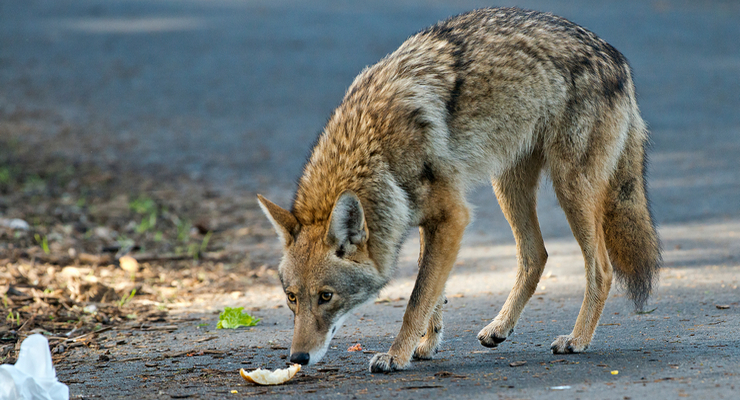
At the Committee’s meeting Wednesday, members expressed concerns about coyote sightings in Pasadena neighborhoods and for the safety of children and pets.
“The coyote population in our city has just exploded. They are no longer afraid of humans and the idea of raising your hands or taking a stick does not make a difference on our walks,” said Councilmember Tyron Hampton. “We’ve got to do more.”
“Collectively we should work together to try to control the population and get coyotes back to being fearful of humans. I agree to bringing this back and update the policy,” added Hampton.
The City’s strategy for managing wildlife under the Urban Wildlife Management Plan developed by Pasadena’s Public Health Dept. is based on “balancing respect and protection for wildlife while also protecting public safety.”
Adopted by the City Council in 2019, the plan has a three-pronged approach that includes education of the public, enforcement of laws, and categorization of coyote interactions to correctly identify and respond to threats.
The plan requires active participation on the part of the entire community including residents, homeowner associations, volunteers, and city personnel.
The plan requires the City of Pasadena Citizen Service Center to record and track coyote sightings and encounters. The Pasadena Humane Society responds to attacks and aggressive coyote behavior.
According to Interim Public Health Director Manuel Carmona, there were 159 coyote concerns reported to the Citizen Service Center in 2022. 12 of them are related to injured or killed pets.
No person has been injured in 2022.
According to data presented by Carmona, the number of coyote concerns are highest in the months of April and May and August and September.
Carmona said non-lethal techniques are effective to reduce interactions and conflicts with coyotes.
The techniques include hazing, removing attractants such as trash, fallen fruit and pet food left outdoors, keeping pets indoors and using six foot or shorter leashes when walking, physical improvement to spaces and enforcement of laws prohibiting feeding of wildlife.
The state authorizes property owners to trap coyotes on their own property if they receive a trap ID from California Fish & Wildlife.
The city also has the option to use lethal control if there is an unprovoked, confirmed attack on a human, or if other conditions that pose a threat to human health or safety exist.
In such events, the city would coordinate with California Fish and Wildlife to conduct abatement.
Carmona said Torrance in South Bay, is one of the cities which has a trapping and euthanization program to date.
The city has established the program in 2019.
“In the first year they trapped and killed 14 animals. In the second year it was 15 but in the second year the sightings and activities of coyotes actually increased.”
“I don’t think there’s any conclusive information that says that trapping will lead to a reduced population of coyotes,” Carmona further said.
Citing studies, Carmona also said lethal control leads to rapid reproduction also known as rebound effect.
Still, the City Council wants the Torrance policy against coyotes studied.
“I do want to give staff, the city manager some discretion here but I’d like to study the Torrance proposal when they come back but the idea is we need to take action,” said Councilmemebr Steve Madison.
“Let’s ask staff to look at different models. Let’s contact other cities around us that have struggled with this including Sierra Madre — all foothill cities,” Mayor Victor Gordo said. “Maybe we could get some of the data, best practices not just from the county or region [but statewide and other parts of the country as well].”
Information on coyote sightings and encounters can be submitted using the online reporting system or by calling (626) 744-7311.
The PHS will respond to attacks and aggressive habituated coyote behavior. Contact PHS at (626) 792-7151.


















